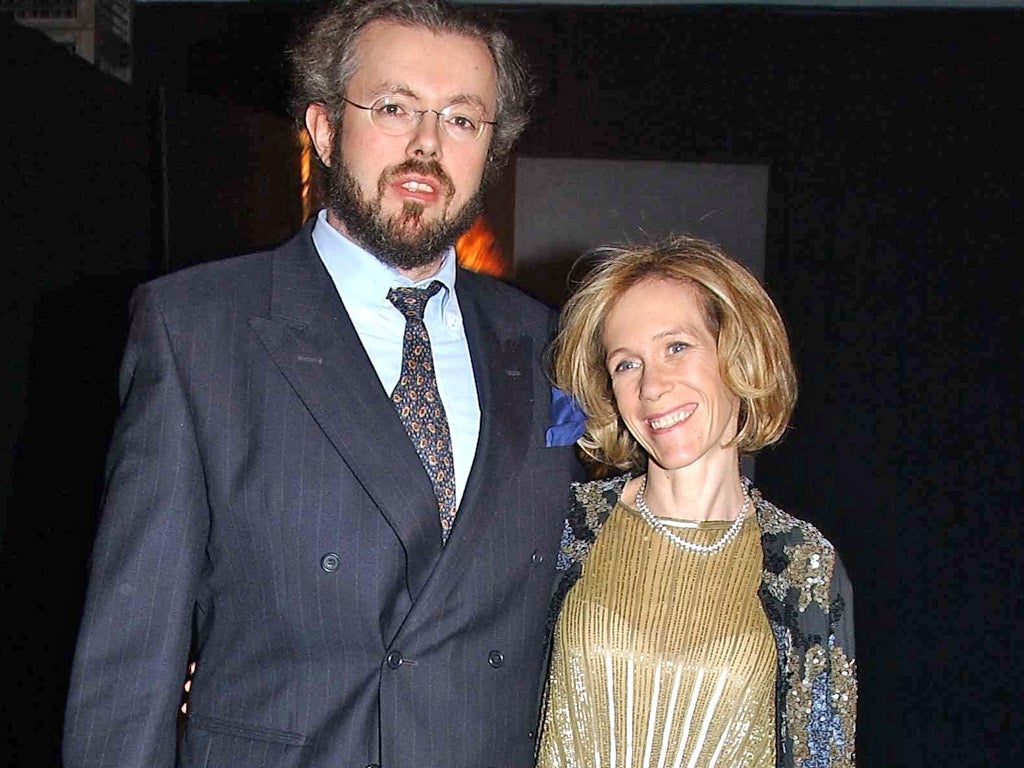Elite users never had to slum it to buy drugs
Eva Rausing's death reminds us that money, while not buying happiness, can buy a lot of narcotics. By Cahal Milmo

When she appeared on the doorstep of her Belgravia townhouse shortly after her arrest for carrying a cocktail of Class A drugs into the US embassy in her handbag, Eva Rausing appeared dishevelled but contrite. In a statement, she said: "I have made a serious mistake, which I very much regret... I hope in due course to get back on track and become the person I truly want to be."
It was a brave and doubtless heartfelt declaration of intent in a life already, by 2008, punctuated by narcotics binges and visits to rehabilitation centres for the then 44-year-old socialite who sought to give purpose and structure to a life of conspicuous privilege and bottomless wealth by philanthropy.
Together with her Tetra Pak heir husband, Mrs Rausing – who had four children – regained a veneer of if not respectability then at least understanding in the four years after being charged with drug offences as they attended glittering parties, fundraising balls and provided multi-million pound patronage to addiction charities.
While figures including Prince Charles argued that Eva should be given a "second chance", others were less impressed. Sir Ian Blair, the former Metropolitan Police Commissioner, made it known that he saw the decision to drop charges against the couple after £2,000 of crack cocaine was found at their home in return for a conditional caution, as amounting to one law for the rich and another for those who remain.
Yesterday the extent to which the public persona of the recovering and repentant addict was the flip side of a still-tarnished coin was becoming clear as police continued to investigate Mrs Rausing's death and pieced together the events that preceded the arrest on Monday of Hans K Rausing driving erratically in south London. By then, his wife's body may have lain in their £50m central London home for up to a week.
Scotland Yard confirmed yesterday that the time of death for the mother-of-four was part of its ongoing investigation. A post-mortem examination failed to establish an immediate cause of death for Mrs Rausing despite an apparent overdose, lending weight to the theory that she had been dead for some time prior to the discovery of her body on Monday.
Her 49-year-old husband remains in an unnamed south London hospital where he is understood to be likely to be require a lengthy period of treatment.
Friends of the couple have said that their attempts to leave behind their drug abuse were hampered by the coterie of "elite" dealers who continued to contact or surround them even as they checked out of rehab clinics and recovered some of the psychological strength required to overcome addiction.
Pictures of the pair taken in recent weeks underlined the extent to which the warning bells were once more ringing. Her hair long and unkempt and carrying a bottle of mouthwash used to treat gum disease, Mrs Rausing looked far from the woman pictured in a emerald necklace next to her clean-shaven husband at a society ball in 2004.
Mr Rausing, stooped and unshaven in an ill-fitting jacket, has been seen walking along the streets of Chelsea clutching a pouch of rolling tobacco, a shadow of the glossy-haired figure of a few years ago who stands to inherit a share of his father's £4bn fortune.
The role played by crack, cocaine and heroin – all substances found in the couple's home in 2008 – in the events of this week remains to be ascertained.
But at least in the past it seems the Rausings had access to a "closed market" of drugs, a network of high-end dealers offering the sort of discretion required by super-wealthy drug users at the sort of prices that the super-wealthy are willing to pay.
i understands that central London and other monied corners of the country are serviced by a number of well-connected dealers, often considered friends as much as pushers, who source high quality drugs from a shopping list of high-purity drugs that ranges from Nepalese marijuana to Bolivian cocaine and guarantee delivery in a manner guaranteed not to attract unwarranted interest.
Some wealthy users are known to use "personal shoppers" who visit a number of dealers to sample their wares before returning with their purchases. A range of delivery methods, ranging from executive hire cars to bicycle couriers, are used.
In return, these customers, for whom money is naturally no object, can expect to pay a premium of, for example, £200 per ounce of cocaine.
Gary Sutton, head of drugs services at addiction charity Release, said: "The wealthy will buy in closed markets. This is very different from the world of rock stars or entertainers where the reasons for drug use can be different and the access to the drugs is different.
"We have also seen the narrative build in recent years where those in the public eye enter rehabilitation and gain some degree of approval and publicity for doing so.
"This is not what people in the position of the Rausings want. The relationship with their dealer is one of very close trust and an expectation of discretion. There many ways in which this works or, ultimately, doesn't work. But where there is trust there is then always the threat of blackmail and exposure."
Subscribe to Independent Premium to bookmark this article
Want to bookmark your favourite articles and stories to read or reference later? Start your Independent Premium subscription today.

Join our commenting forum
Join thought-provoking conversations, follow other Independent readers and see their replies